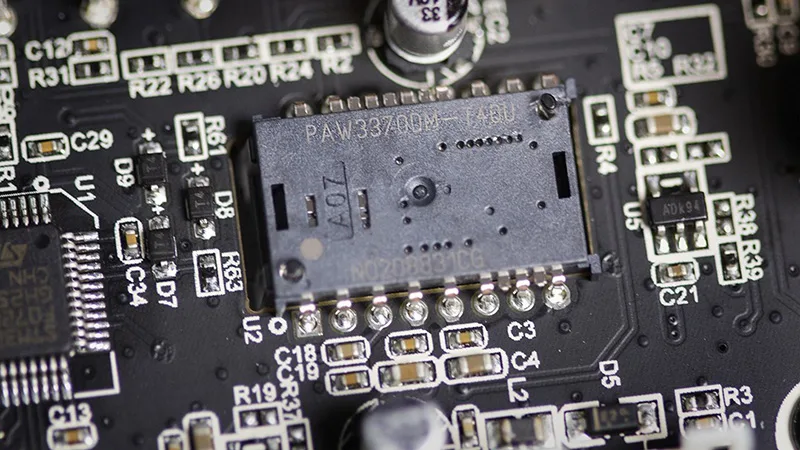The AC condenser coil is a hollow-shaped metal that carries a refrigerant that absorbs heat from the room and releases it to the outside atmosphere. The coil that absorbs room heat is known as the evaporator coil while the coil releases heat outside. Know the point is to choose the correct metal for the condenser and evaporator coil which has better thermodynamic properties. Here, we are talking about copper and aluminium coil types used in today’s generation AC units.
So, before buying a air conditioner unit, let’s learn about these two condensers’ metal types and how they work.
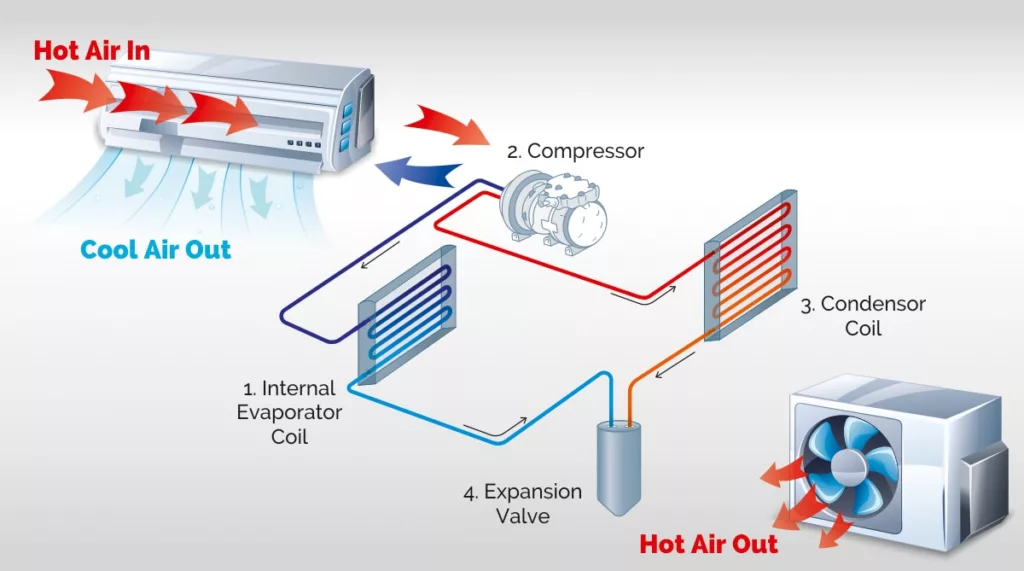
When we talk about AC, an essential part of the AC is the condenser. In this post, we will discuss the condenser and which coil is better for your AC: copper or aluminium. Let’s take a tour.
Condenser Coil vs Evaporated AC Coil
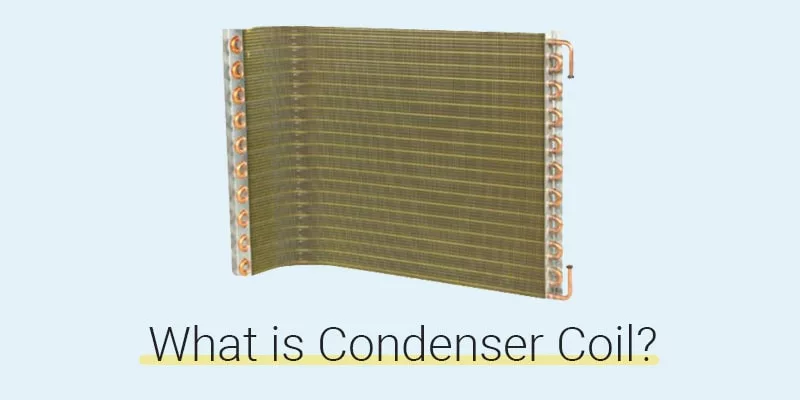
Firstly, a condenser coil is a network of a tube that is fitted to the outdoor AC unit. Inside this coil, there is a hot gas vapour which is known as the refrigerant. The main purpose of this coil is to release all the heat to the atmosphere that comes from your room. As AC works, the temperature of the condenser coil gradually becomes higher than the atmospheric temperature. This coil is always surrounded by fins which are generally made of aluminium alloys. However, a condenser coil is either made of high-grade copper or aluminium. A fan is also used in the outdoor unit to remove all the heat from the condenser coil as quickly as possible.
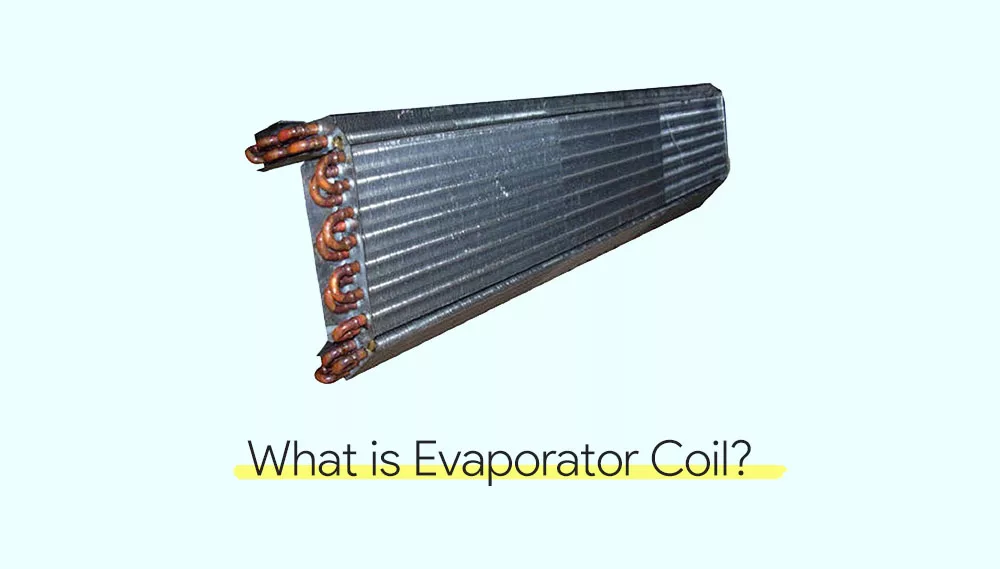
Secondly, the other half of the coil remains connected to your indoor unit which is known as the evaporated coil. Both coils are connected with the help of an expansion valve which restricts the refrigerant flow. Thus, the expansion valve helps in reducing the pressure of the refrigerant, which makes the refrigerant cold. As AC works, the temperature of the evaporated coil gradually becomes colder than the room temperature. Finally, the evaporator coil starts absorbing all the heat from the room and transfers it to the condenser coil and the process continues. The evaporator coil is generally made up of aluminium, copper, and steel.
Copper vs Aluminium AC Coil: Differences
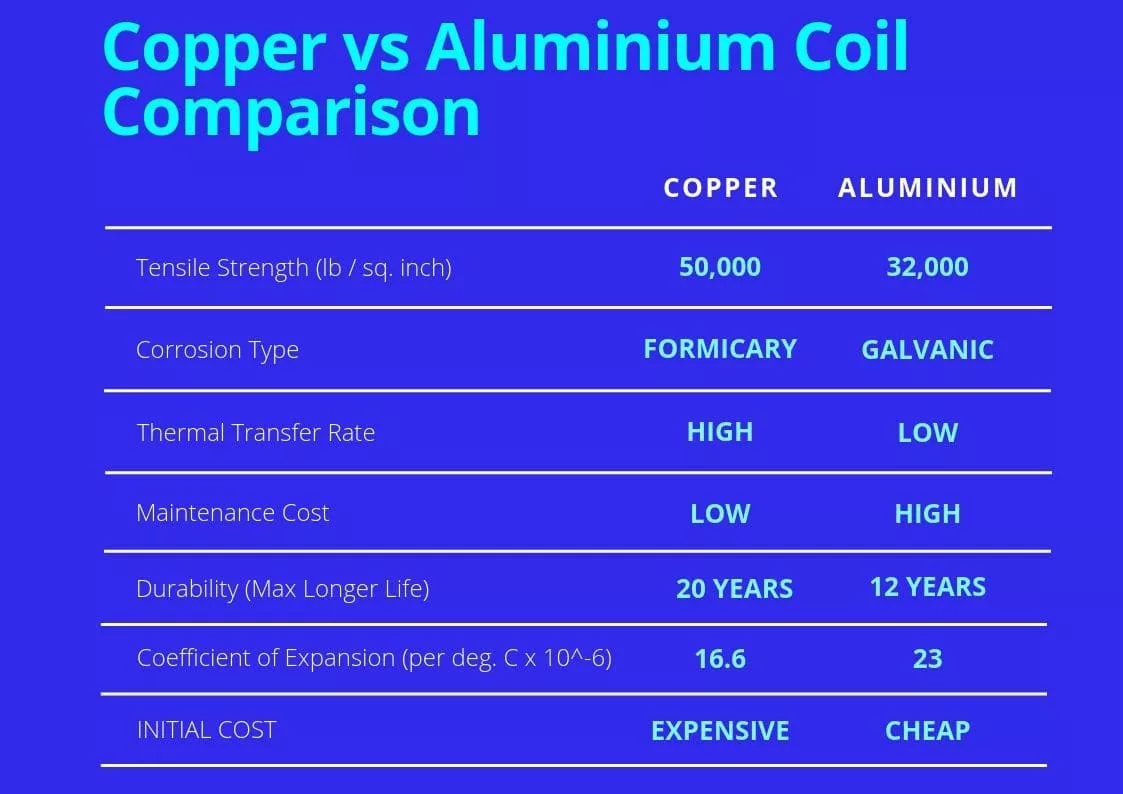
Now you have learned how important is a coil in an AC unit. Therefore, if you choose a better coil metal type, the cooling capability of your air conditioner improves. Most of the condenser coils are made up of either aluminium or copper as they are considered one of the best conducting materials. Both metals have their pros and cons. Let’s find out.
1. Cooling Performance Difference
When we talk about cooling, we need to take reasonable consideration of the heat transfer rate of the coil. People spend loads of money to feel better cooling in their homes, and the heat transfer rate is significant for proper cooling. The refrigerant used in an AC unit requires the continuous transfer of heat to provide maximum possible cooling.
Copper has a low specific heat value (1 degree Celsius per unit at 384.4 J) which means it is better for heat exchange and therefore will cool faster and consistently as compared to aluminium which has a higher specific heat value. Added to this, there is less energy loss using a copper coil, which will cut down your monthly electricity bill as well. So, copper is a better choice than aluminium coil in terms of cooling performance. Also, the more tons of AC you have, the more efficient copper becomes.
2. Durability Difference
As the aluminium metal is more ductile than copper, it is quite difficult to repair any damage caused to these coils. In most cases, you have to replace it with a new one. Whereas, copper has comparatively high tensile strength and therefore, is less ductile, which makes it tougher to withstand minor damages. In case of any damage, repairing is an easy option in the case of copper coil. So overall, copper is much more durable than aluminium condenser.
3. Anti Corrosive Difference
Corrosion is the biggest enemy of metals, and protection is really necessary. Corrosion may impact cooling performance and often lead to malfunctioning in an air conditioner. Both copper and aluminium are prone to corrosion when they come in contact with moisture, air, and dust impurities.
In the case of aluminium, galvanic corrosion takes place, which causes severe damage and often leads to refrigerant leakage. Galvanic corrosion is harder to avoid. On the other hand, copper gets formicary corrosion, which can be avoided easily by proper cleaning and half-yearly servicing. The corrosion phenomenon in copper can be prevented for a more extended period.
4. Coefficient of Expansion Difference
The coefficient of expansion (COE) means how much a metal expands when comes to contact with heat. In the case of AC, the temperature of the refrigerant generally stays between 50°C to 60°C, which is enough to expand a metal. The higher the value of the coefficient of expansion, the lower will be the cooling output.
As you can see from the above table, the COE value of copper is better than that of aluminium.
4. Maintenance Difference
The coil is generally placed in the condenser unit which is placed outside the home as it is the outdoor unit of an AC. Due to this, it has to withstand harsh weather conditions, dust, and climate changes. So it has to be strong enough to bear the extreme weather conditions.
The strength and durability of copper are much higher than that of aluminium; therefore, aluminium coils must be placed under some cabinets to protect them. Hence, the cost of maintenance will be less in the case of copper coils when compared to aluminium coils.
5. Cost-Effective Difference
The initial price of copper is much higher than aluminium. For the same reason, some AC brands are still using aluminium coils to cut their manufacturing costs and produce low-cost ACs.
However, the copper coil has proven as the best power saver, which saves you money in the monthly bill and maintenance costs. So the effective cost of copper is much lower than aluminium. So our suggestion is not to compromise with the quality to save initial money.
Which is the Better AC Condensor Coil Overall?
Considering all the above facts, the choice of the best coil is very clear and easy. In every feature, copper dominates aluminium. So, our choice will be copper coils that are best suited for a longer life of your AC and let you enjoy the comfort for a longer time. Also, nowadays very few AC brands are manufacturing air conditioners that come with aluminium condenser coil which is a great sign from an environmental perspective.
